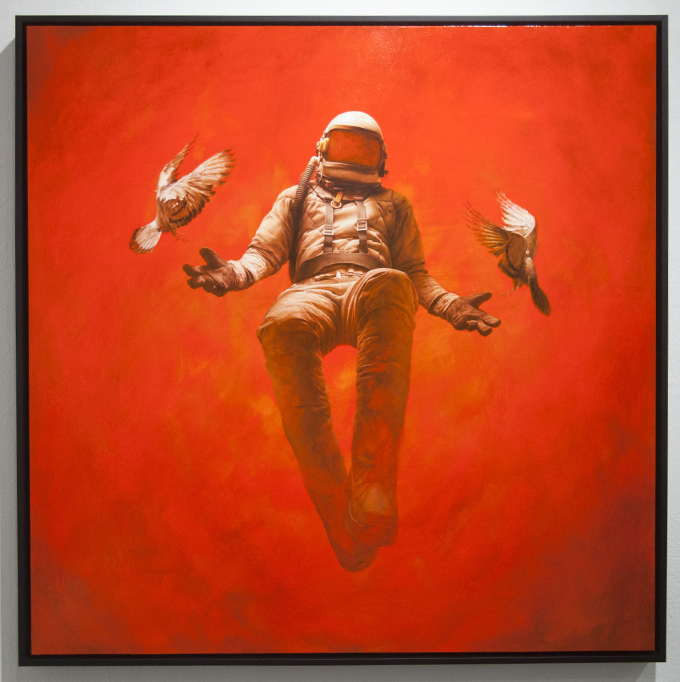In this, the final section of our seminar, I will ask you to draw personal conclusions about how you, I, or any other citizen should “live within the truth.” As always, I am thinking about “truth” in all of its bountiful and uplifting manifestations. In terms of citizenship, I am thinking especially of how we are obliged to act in both a flourishing liberal democracy as well as any other human community, such as Notre Dame.
24. Monday, April 24 Power of the Powerless I
What does it mean to live in a lie? The first half of Havel’s magnificent essay focuses on what it meant to live in a lie under the sclerotic authoritarian regimes of late communism. In the last few pages, Havel suggests that we may be doing the same thing in advanced democracies.

As you read the first part of this essay, ask yourself how his argument about “post-totalitarian” societies might apply to everyday life in a non-posttotalitarian society. When you get to chapters XX-XXII, you will see that Havel has exactly this idea in mind.
Vaclav Havel, “The Power of the Powerless.” This essay is in Open Letters. Read Parts I-VI, and XX-XXII
Havel’s essay is challenging. Read it very carefully and more than once; I am still discovering new things in his argument.
For this class, please do not focus on what Havel means by “living within the truth.” We will discuss that issue in our next class.
For an ironic, but interesting use of Havel’s argument, Michael Rectenwald,
“Living in the Age of COVID: “The Power of the Powerless” PRINT AND READ
What would Havel think of Rectenwald’s argument?
26. Wednesday, April 26: Power of the Powerless II
The second half of Havel’s essay challenges us to live within the truth. What does it mean to live within the Truth? Why is it difficult to do so? Under what circumstances might we nevertheless be compelled to live within the Truth? This is a different question than asking about the desirability of living within the truth. It raises the question of what must happen in order for people to see no other option.
Vaclav Havel, “The Power of the Powerless,” Open Letters: Selected Writings, Parts VII-XXII.
Vaclav Havel, “Never Hope against Hope” PRINT AND READ
Don McNeil, “Fauci on what working with Trump was really like,” New York Times, January 25, 2021 READ AND PRINT
In my view, Fauci has embodied the idea of living within the truth. The kind of honest he exhibited is a rare feat in working with any politician whose primary goal is to get reelected, not just with the former President.

A message from Arnold Schwarzenegger: WATCH This is a partisan video (albeit by a Republican about other Republicans). I am asking you to watch this video because of what Arnold has to say about 1) the impact of a culture of lies and 2) the Catholic idea of a “servant’s heart.”
Anyone who doubts the Terminator’s intelligence should read his book, Pumping Iron.
27. Monday, May 1: Movie and Class Dinner, 6:00 pm
Film: Francis Ford Coppola, “The Conversation”
Location: B058 Nanovic Hall
28. Wednesday, May 3:
Let’s Chat–GPT!
OpenAI Read its Charter PRINT AND READ
Bruce Weinstein, “Why smart leaders use ChatGPT ethically and how they do it” PRINT AND READ
David Gewirtz, “Just how big is this new generative AI? Think internet-level disruption” ZDNET, February 27, 2023: PRINT AND READ
Noam Chomsky,”The False Promise of Chat GPT” PRINT AND READ
Tony Simons, “The High Cost of Lost Trust,” Harvard Business Review, September 2022: PRINT AND READ
Lewis Hyman, “It’s Not the End of Work. It’s the End of Boring Work” PRINT AND READ
Vaclav Havel, “Never Hope against Hope” RE-READ
Your Final Essay Assignment is here
Ω
Ecclesiastes 9:11 “I returned, and saw under the sun, that the race is not to the swift, nor the battle to the strong, neither yet bread to the wise, nor yet riches to men of understanding, nor yet favor to men of skill; but time and chance happen to them all.”
No one ever asks me why I include this passage at the end of my syllabi. Will you?
